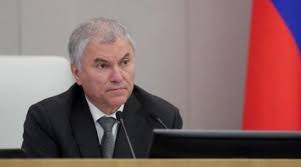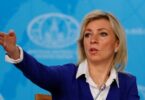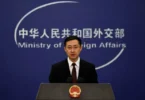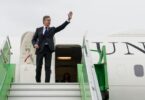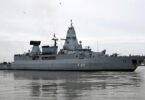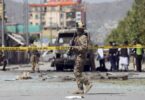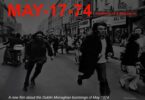MOSCOW (Reuters): Russia is revoking ratification of the Comprehensive Nuclear Test Ban Treaty because the irresponsible attitude of the United States to global security, the speaker of the lower house of the Russian parliament said on Tuesday.
President Vladimir Putin, who earlier this month suggested that Russia revoke ratification of the 1996 treaty because the United States had not ratified it, said he was not ready to say whether or not Russia would resume nuclear testing.
“In the interests of ensuring the security of our country, we are withdrawing the ratification of the Comprehensive Nuclear Test Ban Treaty,” Duma Speaker Vyacheslav Volodin said ahead of a debate and parliamentary vote on revoking ratification.
Volodin said that while Russia had ratified the treaty in 2000, Washington had failed to ratify because of its “irresponsible attitude to global security issues”.
“The Russian Federation will do everything to protect its citizens and to maintain global strategic parity,” Volodin said.
While Russia is revoking ratification, it will remain a signatory and will continue to cooperate with the test ban treaty organisation and the global monitoring system which alerts the world to any test.
A resumption of nuclear tests by Russia, the United States or China could indicate the start of a new nuclear arms race between the big powers who stopped nuclear testing in the years following the 1991 collapse of the Soviet Union.
For many scientists and campaigners, the splurge of nuclear bomb testing during the Cold War indicated the folly of nuclear brinkmanship which could ultimately destroy humanity and contaminate the planet for hundreds of thousands of years.
But the Ukraine war has raised tensions between Moscow and Washington to the highest level since the 1962 Cuban Missile Crisis just as China seeks to bolster its nuclear arsenal to accord with its status as an emerging superpower.
Russia currently has around 5,889 nuclear warheads, compared with 5,244 for the United States, according to the Federation of American Scientists. China has 410 warheads, France 290 and Britain 225.
NUCLEAR TESTING?
Between 1945 and the 1996 Comprehensive Nuclear Test-Ban Treaty, the United Nations has said, more than 2,000 nuclear tests were carried out – 1,032 by the United States and 715 by the Soviet Union.
The Soviet Union last tested in 1990 and the United States in 1992. But signs have emerged that testing could resume.
In 2020, the Washington Post reported that the then-Trump administration had discussed whether to conduct a nuclear test.
Putin said Russia had successfully tested a nuclear-powered and nuclear-capable cruise missile – the Burevestnik – whose capabilities he has called unmatched.
China is building hundreds of intercontinental ballistic missile silos, according to the 2023 Annual Threat Assessment by the US intelligence community.
CNN reported this month that satellite images showed increasing activity at nuclear test sites in Russia, China and the United States.
Washington says China is reorienting its nuclear posture for strategic rivalry with the United States and is not interested in any arms control agreements which lock in US or Russian nuclear dominance.
“China and Russia are seeking to ensure strategic stability with the United States through the growth and development of a range of weapons capabilities, including non-traditional weapons intended to defeat or evade US missile defences,” according to the US threat assessment.
“Consequently, these new technologies probably will challenge the way states think about arms control, and we expect it will be difficult to achieve agreement on new weapon definitions or verification measures, particularly at the multilateral level.”

